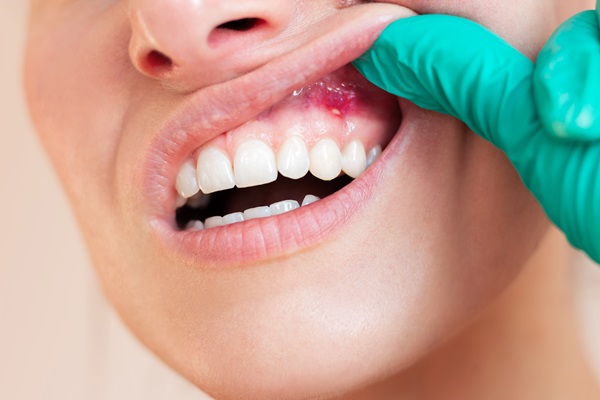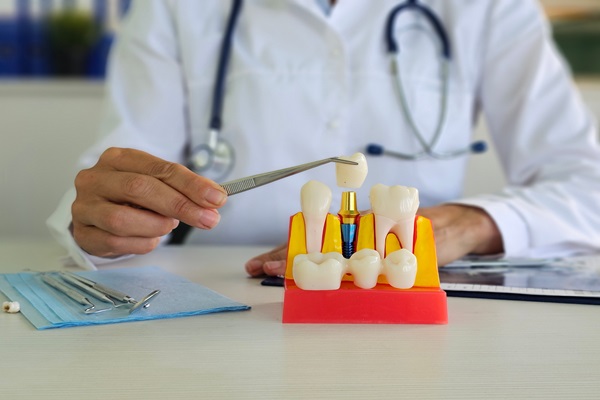3 Types of Gum Disease Treatment

General dentistry has several approaches to gum disease treatment. The goal is to prevent complications like tooth loss, relieve pain and discomfort, and restore the patient’s smile. Learning the basics of the most common types of gum disease treatment can help patients better understand why a specific approach is recommended for their oral health needs.
Understanding gum disease and its oral health impact
Gum problems tend to begin with gingivitis, an early stage of gum disease characterized by gum inflammation, redness, swelling, and occasional bleeding during brushing or flossing. Gingivitis can progress without treatment, eventually damaging the jawbone and tissues that support the teeth. Advanced gum disease can result in tooth mobility and even tooth loss.
Gum disease results from the buildup of plaque and tartar on the teeth, which harbor harmful bacteria that irritate and infect the gums. Risk factors include poor oral hygiene, smoking, hormonal changes, and certain medical conditions. Beyond oral health, untreated gum disease has been linked to systemic issues from heart disease to diabetes, another reason why it is important to treat it promptly.
Types of gum disease treatment
While gingivitis may be reversible with non-invasive procedures, advanced gum disease often requires more intensive interventions. Here are three common types of gum disease treatment commonly recommended in general dentistry:
Deep cleaning: Scaling and root planing
A deep cleaning called scaling and root planing can effectively treat mild to moderate gum disease. This non-invasive treatment involves removing plaque and tartar from above and below the gum line (scaling) and smoothing the root surfaces (root planing) to prevent bacteria from reattaching. Conversely, the gums can easily reattach to smooth, clean teeth roots.
A dentist or dental hygienist may use special instruments, ultrasonic devices, or laser technology to thoroughly clean the affected areas during scaling and root planing. As a result of this procedure, patients often experience reduced gum inflammation, tighter gum attachment, and an improvement in overall gum health.
Antibiotic therapy for gum infections
Antibiotic therapy often works alongside other treatments to target the bacterial infection causing gum disease. Dentists may recommend systemic antibiotics in pill form, as well as local antibiotic gels or dissolvable strips to be applied directly to the affected gum tissue. This gum disease treatment aims to reduce infection, relieve inflammation, and improve gum pocket depth, enhancing the overall efficacy of other treatments.
Surgical gum disease treatments
For advanced gum disease that has caused significant damage to the gum tissue or supporting structures, surgical intervention may be necessary. Surgical gum disease treatments include the following techniques, each of which can address specific issues:
- Flap surgery. Lifts the gums to access and clean deeper pockets of infection.
- Bone grafting. Restores bone density and supports the teeth.
- Soft tissue grafting. Covers exposed tooth roots and restores the gum line.
Surgical treatments are typically reserved for advanced gum disease but can be highly effective in restoring oral health and function.
Schedule a consultation for gum disease treatment
By promptly addressing gum disease with professional gum disease treatment, patients can maintain healthy gums, strong teeth, and overall well-being. Whether the patient has a mild or advanced case of gum disease, there are effective treatments available to restore their oral health. Call our Bellevue general dentistry office today to learn more.
Request an appointment here: https://www.adendentalbellevue.com or call Aden Dental at (425) 620-2327 for an appointment in our Bellevue office.
Check out what others are saying about our dental services on Yelp: Gum Disease Treatment in Bellevue, WA.
Related Posts
Dental bonding and teeth whitening are common dental procedures that improve the appearance of your smile. However, some patients are concerned that their teeth may not have the same shade after teeth whitening, particularly if they have had dental bonding on one or more teeth. This review helps patients deal with this concern. Understanding the difference…
Dental crowns can treat many different concerns. They can repair damaged teeth, attach to dental implants for teeth replacement, and more. Two of the main types of dental crowns are metal and porcelain crowns. Both are effective solutions, but one may be preferable to another depending on the intended purpose.Your dentist should help you decide…
Getting a professional dental checkup and cleaning every six months is not just important for adults. Children need this type of care too, and a family dentist can provide it. There are several reasons parents should schedule routine dental appointments for their children early in life. Doing so can help kids maintain good oral health…
Seeing a cosmetic dentist can bring dramatic improvements to your smile. The experience can even enhance your oral health. Knowing what to look forward to from this dental care provider can prepare you for your appointment. Here are the things to anticipate from a cosmetic dentist.Visiting a cosmetic dentist for the first time can be…


